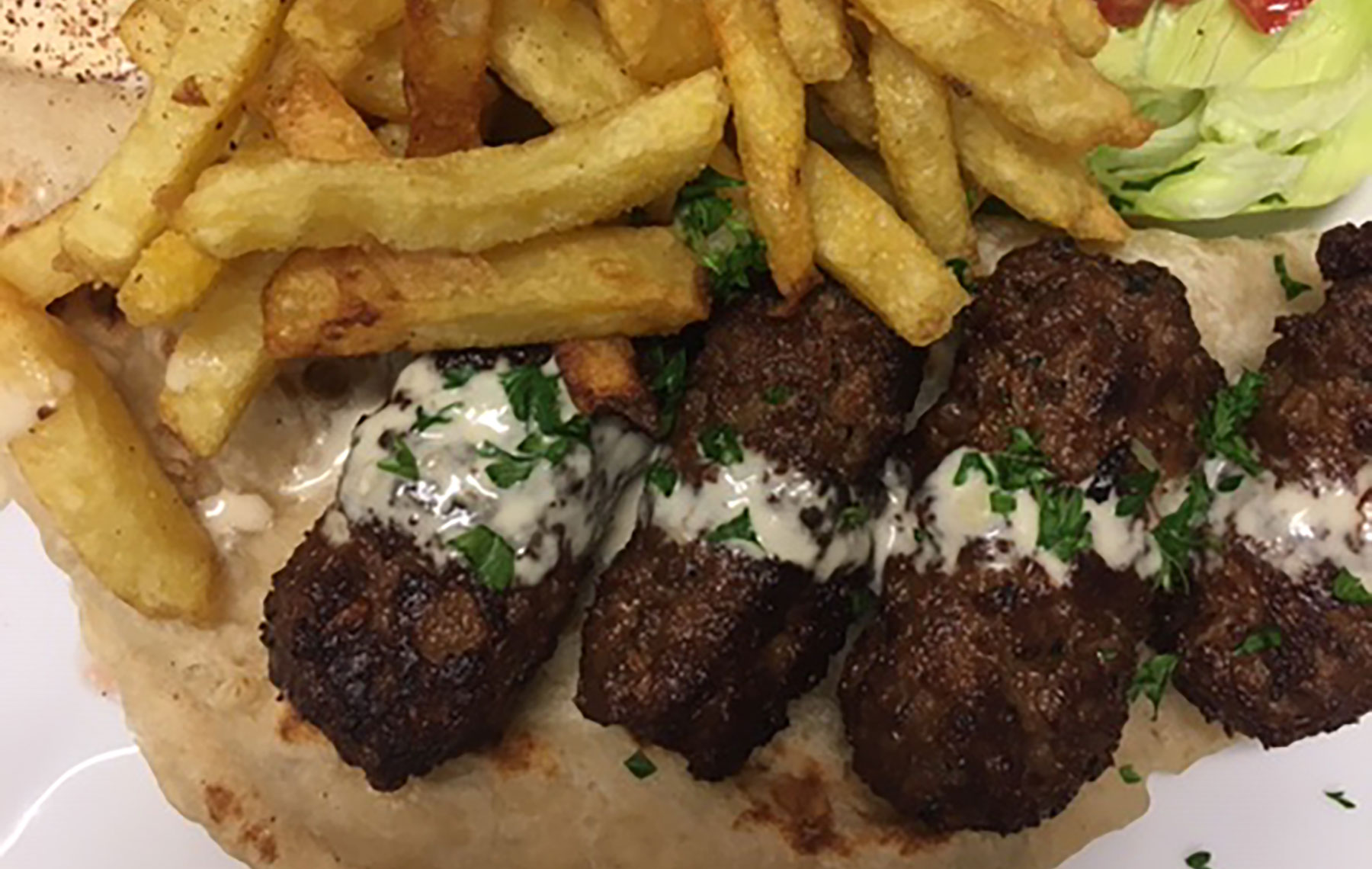
It is a supreme irony that I’m writing recipes for Israeli Independence Day (Yom Ha’atzmaut) for American readers, safe in my house overlooking majestic Lake Victoria in Uganda, while my homeland, Israel, has been bombarded by rockets over the past weekend. Four Israelis were killed and dozens injured in attacks by militant terrorist groups Islamic Jihad and Hamas, which have launched more than 600 rockets and mortar shells. It was reported that 240 of these projectiles were intercepted by the Iron Dome defense system, but many fired from Gaza landed within Gaza, killing more than 20 Palestinians and injuring countless others.
The government closed schools in most of Israel’s southern cities on May 5 and the situation is considered code red (emergency), with sirens blaring to warn of incoming rockets, traumatizing residents. Although most of my friends and family reside in Tel Aviv and its suburbs, Israelis in the south aren’t the only ones worried. Rockets fired in March landed only two streets from my best friend’s house. It demolished their neighbors’ villa, injuring all seven members. Although the house, a bit north of Tel Aviv, was struck by an unusually long-range missile, the event left my friend’s two young daughters traumatized and their parents shaken; a harsh reminder of the reality Israelis contend with.
While thousands of visitors enjoy Tel Aviv’s beaches in the run-up to the Eurovision Song Contest (planned for the past year), it’s a testament to the Israeli spirit that most of the revelers interviewed on Israeli television who are partying, eating in restaurants and enjoying the nightlife, feel safe. And this isn’t only because Israelis are inured to acts of terror, but because at the end of the day, they have no choice. They know what they need to do — they have a call list and a plan of action, bomb shelters in their basements and schools, and frequent drills. They’re alerted by Israeli telecoms with notifications of emergency code levels and instructions.
It’s May 5 in Uganda as I write this and I’m in the same time zone as my family in Israel. No one knows if there will be a cease-fire in the run-up to Yom Ha’atzmaut. No one knows if there will be more rockets launched or how deep into Israel they will strike, and no one knows if the next text message they get from their son or nephew will be to tell them that their unit has been moved to the front lines of this conflict. Nor do they know if their husbands or sons will be called up for reserve duty (mandatory up to age 45 for males.) What they know, and what I know, is that the show must go on. In Israel, people don’t plan their daily movements around terror. If they did, they might find it difficult to get out of bed in the morning and be tempted to keep their children home from school every day.
I’ll be celebrating the holiday with other Israelis in Uganda at an event thrown by our consulate, and I’ll be nudging the universe with positive vibes by serving these kebabs at the American Embassy where I work. But at this juncture, I don’t know if I should be writing a recipe for the Bulgarian Beef and Lamb Kebabs my family eats for the Yom Ha’atzmaut festivities or handing over a recipe for charcoal-grilled rockets, as one of my cousins suggested (morbid Israeli humor), “one part metal, one part explosives, onion, salt and pepper to taste — yummy.”
But after talking to a few of my favorite Israelis on the phone over the past few days, I bet that every backyard, beach and restaurant in the country will be full of families enjoying a traditional “al ha esh” (BBQ) session. Blame it on that crazy Israeli confidence or audacious optimism but in order to move forward every day, I, like most Israelis, need to believe that’s a pretty safe bet.
KEBAPCHETA — BULGARIAN STYLE KEBAB
1 3/4 pounds minced beef (20% fat, 80% meat)
1/4 pound minced lamb (you can use all beef, if you prefer)
2 slices of crustless bread, soaked in water until mushy (optional if gluten free)
1 egg
2 medium white onions, finely chopped or grated
1/2 cup parsley, finely chopped
1 tablespoon cumin
1 teaspoon paprika (sweet or hot)
1 tablespoon black pepper
2 tablespoons kosher salt
1/2 teaspoon sugar (optional, but aids in caramelization)
Mix all ingredients well. The most efficient way I’ve found to do this is to put all ingredients in a Ziploc bag with all the air removed and then throw it onto a countertop a few times until they are combined.
Refrigerate overnight (or at least 1 hour.) When ready to cook, cut a corner of the plastic bag and squeeze out 2-inch-long sausage-shaped kebabs and lay on a plate or baking sheet.
Grill over charcoal for best flavor but these can be cooked in a pan or even under the broiler. Turn kebabs every few minutes until a deep, brown color on all sides and cooked through. This should take about 6 minutes per batch depending on how hot the grill is.
Serve with Israeli salad, lettuce, pickles, pita or laffa bread (recipe below) hummus and tahini.
Makes about 30 kebabs.
LAFFA (FLATBREAD)
7 cups all-purpose flour
1 package active dry yeast (1/4 ounce)
2 tablespoons sugar
2 teaspoon salt
4 tablespoons olive oil
3 cups warm water
Combine dry ingredients in the bowl of a stand mixer. Add oil and water and mix with a dough hook attachment until dough is soft, smooth and elastic, about 12 minutes.
Place dough in an oiled bowl and cover with plastic wrap and then a tea towel. Place in a warm draft-free corner or in a microwave that’s not in use. Let dough rise for 1 hour or until doubled in size.
Divide the dough into 12 equal-sized balls and roll on counter until smooth. Place on an oiled baking tray and cover with a damp tea towel for about 20 minutes.
Heat a flat pan or griddle on medium heat (a cast iron pan works well for this.)
On an oiled wooden cutting board, flatten dough balls with your hands (or use a rolling pin) until they are a 12-inch circle. Place on hot surface of pan. When edges look dry and bread begins expanding, turn over and cook on the other side. This usually takes about 2 minutes per side. Immediately place laffa in a basket or on a plate and cover with clean kitchen towels to keep warm. Continue with remaining dough balls.
Makes 12 laffas.
Yamit Behar Wood, an Israeli-American food and travel writer, is the executive chef at the U.S. Embassy in Kampala, Uganda, and founder of the New York Kitchen Catering Co.























 More news and opinions than at a Shabbat dinner, right in your inbox.
More news and opinions than at a Shabbat dinner, right in your inbox.